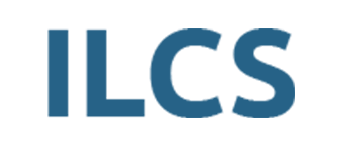New Airbus at Paris Air Show. NEW Market. Business/ Aviation (dostęp otwarty)
Przyimki i frazeologia z ich zastosowaniem to jedno z najobszerniejszych zagadnień gramatyki języka angielskiego. Takich wyrażeń jak te poniżej trzeba się koniecznie uczyć na pamięć- zmiana przyimka może zmienić zupełnie znaczenie wyrażenia, spójrzcie proszę: look at- patrzeć na/ look for – szukać/ look down on – pogardzać, nie szanować/ look up to …- podziwiać/ look after- opiekować się, itd. Poniżej frazeologia z tekstu o premierze A321XLR na Paris Air Show:
- threat to … – zagrożenie/ niebezpieczeństwo dla …
- fly up to … – pokonać trasę długości aż …
- on these routes – na tych trasach
- assault on … – cios / atak na …
- take over – wyprzedzić lub przejąć
- at the expense of … – kosztem …
- for seven hours- przez 7 godzin
- driver for … – siła napędowa/ motywacja dla …
- packed with … – wypełniony … (czymś)
NAGRANIE WYMOWY SŁOWNICTWA Z CAŁEGO ARTYKUŁU
One of the biggest stories of the Paris Air Show is about a relatively small plane. Airbus has officially launched the A321XLR: [e]xtra-long range version of its popular A321neo twin jet. The plane is widely seen as a threat toBoeing’s still non-existent B797 “New Midsize Airplane” (NMA). Airbus says it will be able to fly up to4,700 nautical miles (8,700 km) the longest-range of any single-aisle aircraft. The plane can carry 244 passengers, or from 180 to 220 people in “two-class” seating, including lie-flat business class seating.
Airbus chief salesman Christian Scherer :
“the plane can fly from north-eastern Asia into south Asia, from the Middle East to Bali or from Japan deep into Australia. It is therefore the lowest-risk investment for airlines on these kinds of routes.”
Many see the A321XLR as a more direct assault on Boeing. Using the horserace analogy beloved by journalists, the A321XLR has taken over its presumed rival, the so-called New Mid-Sized Airplane, speculatively called the B797.
For Airbus, and its airline customers, perhaps the most important A321XLR statistic is what the company claims is its “30% lower fuel burn per seat” than previous-generation aircraft.
But not everyone is a big fan of narrow-body twin-jets flying ever-longer distances. The Wall Street Journal, notes:
“the new Airbus A321XLR could fundamentally change transatlantic flights. Flights could cost less, but at the expense of valuable seat space. How long will passengers sit in a small, tightly packed airplane? Soon, the answer from airlines will be: longer…Riding in tight quarters in a small plane for seven hours or more hasn’t sat too well with many travelers. Unlike wide-body jets, narrow-body planes are likelier to offer slim seats and small lavatories with sinks smaller than your dog’s water bowl.”
All this is true. But the reality is that profit, not passenger comfort, is the major driver for most airlines. For airlines that need to make money, narrow-bodied jets packed with seats like the A321XLR and the still-grounded Boeing 737MAX are objects of desire. They are much easier to fill than jumbo jets like the A380 or Boeing 747, yet can still carry more than 200 passengers.
They can land at most world airports without the special gates and other accommodations needed for an A380, they require less crew, and they are much cheaper to operate than larger planes.
Pozostałe przydatne słowa z artykułu:
- launch- uruchomić/ wprowadzić/ wystartować
‘launch’ to świetne słowo pochodzące z języka militarnego: launch a missile – wystrzelić pocisk. Ze względu na swoja dynamikę weszło do powszechnego zastosowania w języku biznesu, np. launch a new project/ launch the new product/ advertising campaign, etc.
- previous -generation aircraft- statek powietrznych poprzedniej generacji
- fundamentally – zdecydowanie, zupełnie, “fundamentalnie”
- slim seats – wąskie fotele
- lavatory – toaleta
- profit – zysk
OBEJRZYJCIE KONIECZNIE WYWIAD Z Airbus CEO Guillamume Faury:
Przydatne słownictwo z wywiadu:
0:19′ we went one step further – poszliśmy o krok dalej
0:25 additional range – dodatkowy zasięg
0:38′ replace – wymienić/ zastąpić
0:58′ scrutiny – dokłądnośc/ formalność
1:08′ raise the level of safety – podnieść poziom bezpieczeństwa
1:16′ reliable certification process – godny zaufania proces certyfikacji
2:00′- we managed to recover – udało nam się wyjść z tego/ pokonać kryzys
2:14′ reasonable growth- rozsądny wzrost
2:25′ demand – popyt
2:30′ supply may be not able to keep up – dostawy mogą nie nadążyć/ podaż nie sprosta popytowi
2:35′ limiting factor – czynnik ograniczający




